Equine-assisted therapy (also sometimes referred to as “equine therapy”) is a form of experiential adventure therapy in which residents interact with horses under the guidance and supervision of qualified professionals.
By taking the therapeutic experience out of the traditional office environment, and through interacting with a powerful yet sensitive animal, equine-assisted therapy allows residents to gain insight into emotions, relationships, and patterns of behavior.
How Equine-Assisted Therapy Works
Equine-assisted therapy occurs in a small-group setting, facilitated by a mental health professional and an equine specialist. Residents may participate in a wide variety of activities on the ground, designed to explore emotional regulation, relationships, and present-moment mindfulness. Therapists help residents process their experience in real time, allowing them to recognize thought and behavioral patterns and practice new ways of being.
Why Equine-Assisted Therapy Works
There are many facets to equine-assisted therapy, but some common themes that arise during sessions are often related to emotion and relationships.
As prey animals, horses are highly sensitive to their surroundings and particularly attuned to emotion. By bringing attention to horses’ responses to residents, therapists help residents gain awareness of their emotional states. With this awareness comes the opportunity to practice self-regulating, process emotions, or gain insight.
As herd animals, equines help residents to explore relationships. Through working with horses, residents can practice skills that are transferable to their human relationships, such as setting and respecting boundaries, building trust, and communicating effectively. Residents may also gain awareness of behaviors and patterns that interfere in their relationships.
At a base level, working with horses can help residents to practice mindfulness. Through staying in the present moment, bringing attention to their emotional state in the here-and-now, and engaging in activities that cultivate a sense of “flow,” residents are able to achieve a quiet mind, promoting brain and nervous system health.












